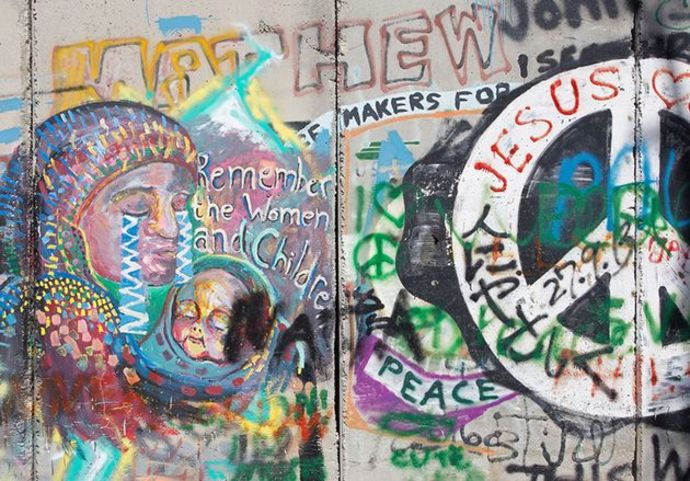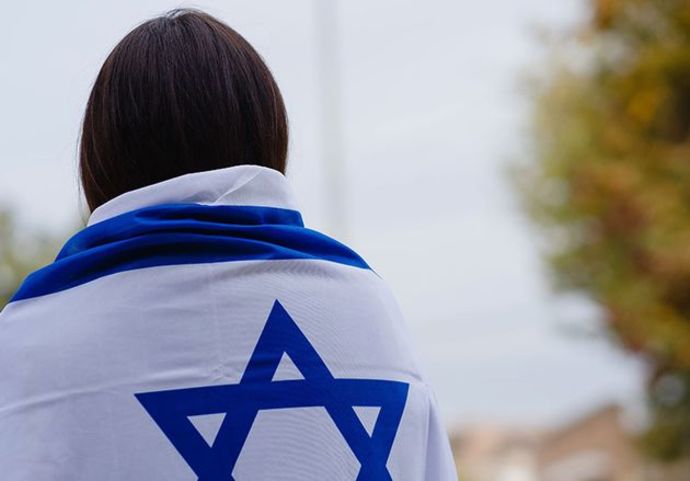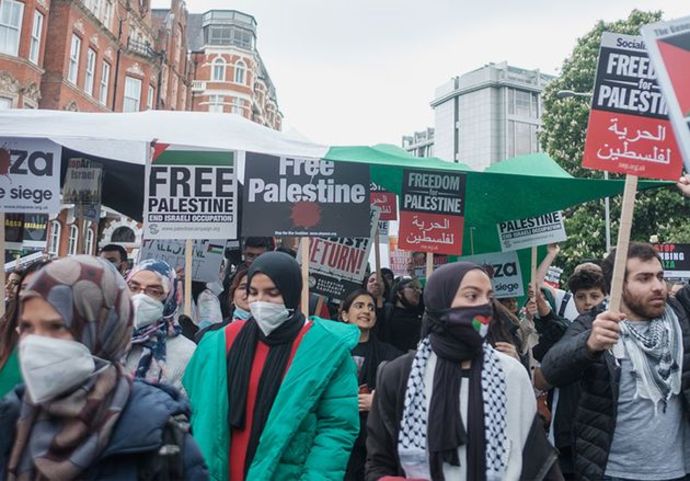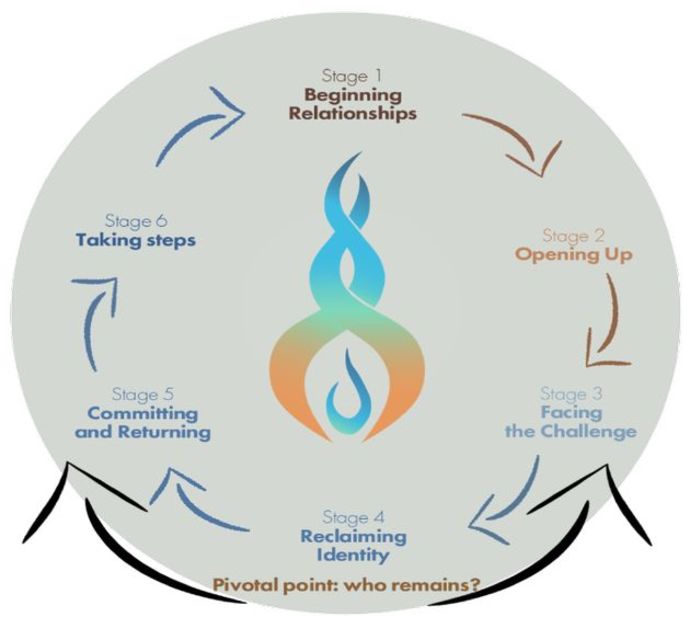The global church crisis
The violence produced by long-lasting intergroup conflicts in many countries such as Israel, the Palestinian Authority, Yemen, Nigeria, Hong Kong, Northern Ireland, Syria, Myanmar and the United States are indicators that the international Christian community is not taking responsibility in promoting reconciliation.
This does not mean that Christians hold all responsibility for intergroup conflicts around the world, but we are not doing enough, and often, are making conflicts worse. In recent years, some Christians have lost their credibility and spiritual authority to be reconcilers.
Many Christians play a major role in our ever-growing polarized world, whether in the politics in the US or the UK, the refugee crisis in the EU countries, and of course in the Israeli-Palestinian conflict.
As a Palestinian Christian, it is astonishing and disheartening to hear and see the militant and hateful behaviors of some Christians in the West—being racist towards people of color, spreading Islamophobia and oppressing women.
Often, God is individualistically boxed into the category of a friend and companion, but pushed aside regarding structural powers in our political, economic, and social spheres of life.
In fact, if mentioned at all, love of enemy, reconciliation and justice seem to be sidelined. I often wonder, how is it possible to share with people about a loving God when Christians are non-reconciling? Or in my specific context, why are many Christians failing to exhibit justice and compassion in the Israel-Palestine conflict?
Positive conflict engagement
Conflict is an inexorable part of life, and we cannot escape it. According to the theologian David Augsburger, "Conflict is essential to, ineradicable from, and inevitable in human life."[1]
While conflict may be painful and potentially catastrophic, it should not be avoided. Rather, conflict should be confronted appropriately and productively. The potential for disaster is latent in any conflict, but the opportunity for progress and positive change is determined by how we deal with such situations.

The Israeli-Palestinian context is known as an intractable conflict.[2] This means that the conflict lasts for an extensive amount of time, and seems impossible to resolve.
It takes on particular characteristics by the two competing groups such as competition over resources, embracing a zero-sum mentality, living in close proximity and competing historical narratives.[3]
Naturally, when people are denied their basic tangible and intangible human needs they will become violent.
In the case of the intractable conflict in Israel-Palestine, the inability to impact it positively is related to exclusivist and discriminative aspects within Christian Zionist theology.
According to such theology, the historical narrative of the conflict and current political events are understood through prophecies in the Old Testament. Any attempt to question or challenge these beliefs can be painful and is usually met with stiff resistance.
While these Christians perpetuate conflict by violent ideologies and policies, others who are not extremists also fail to be part of the solution.
The narrow understanding of missions and evangelism shades and obscures the central message of reconciliation in the Bible. Stressing the need to save souls for the afterlife fails to solve the current conflict between competing groups, and ultimately, bring the kingdom of God on earth.

The gospel of reconciliation
This phenomenon is important to highlight for a variety of reasons. First, it damages the message of the gospel and handicaps the indigenous Palestinian Christians from building relationships of trust with Muslim and Jewish neighbors.
This is because some Christians often support violent positions and hold Islamophobic and antisemitic views. Second, Christians’ inaction becomes an obstacle to reconciliation and peace, especially if they have significant power and influence.
At best, it ignores the root of the conflict and the cries against injustices, and at worst, it enables the Israeli-Palestinian conflict to continue and thrive. Lastly, reconciliation and love of enemy is the mandate of the gospel, the universal mark of the Christian vocation.
People who believe in God are supposed to become a transforming community that approaches and manages conflict differently.
The future of the conflict is everyone’s responsibility
As Christians engage with the Israeli-Palestinian conflict, there are primarily two outcomes in the immediate horizon. If reconciliation is not a central theme in the Christian vocation, we should expect to see more wars, violence and destruction of communities and nature.
The year 2021 was a stark reminder that the conflict needs urgent attention. Do not be deceived by ceasefires. The ingredients for another cycle of violence are ever-present. It is only a matter of time.
Contrarily, placing reconciliation as a central theme in our mission could bring healing to those hurting and traumatized, justice to the oppressed and hope to the fearful.

Regardless, the realization of the kingdom of God does not depend on whether Christians establish it themselves. More accurately, we can join God and participate in the inaugurated kingdom.
A central theme in the Bible is God engaging in history and revealing himself in ways that we did not expect. Let us not forget how in Christianity the symbol of the cross changed from its original meaning of punishment by death to life through resurrection.
It was ultimate success through complete failure. And the most unexpected individuals are invited to take part in God’s intervention in history.
The reconciliation process
One Christian initiative in Israel-Palestine that has understood the need for reconciliation is Musalaha (‘Reconciliation’ in Arabic).
Musalaha was founded in 1990 as a response to the First Intifada, [4] and over the last 30 years, through successes and failures, developed a unique six-stage reconciliation theology and model.[5]

Model: Six Stages of Reconciliation
As seen in the picture, the model starts with stage 1: Beginning relationships. During this initial stage commonalities and shared values and beliefs are emphasized. This process usually takes place in the desert where people can disconnect from their daily conflicts. In addition, the harsh environment of the neutral desert brings people together.
The success of the model relies on four key ingredients: (1) creating equal status in the group and leadership, (2) sharing common goals, (3) minimizing competition and (4) authorities supporting the process.
In stage 2: Opening up, Musalaha provides further opportunities for workshops, seminars, trips and follow-up activities. During this stage, people feel more comfortable sharing and expressing their differences. Generally, the Palestinian side unloads their grievances, and overwhelms the Israelis with their stories and political opinions.
Palestinians tend to be more eager to discuss the occupation whereas the Israelis usually prefer to focus on relationship building.
In stage 3: Facing the challenge, there is a period of regression or withdrawal by participants. The reason for stepping back is a human reaction to the issues raised during stage 2, in which participants’ perception of the conflict or their identity have been challenged.
Withdrawal is part of the process; one should not be discouraged but expect to feel bad at some points.
In stage 4: Reclaiming identity, the goal is not to avoid pain and discomfort but to take the time to self-reflect and rework on self-definitions and renegotiate identity and relationships.
In stage 5: Committing and returning, participants decide to continue the journey of reconciliation or completely pull out of the process. Musalaha identifies this as the pivotal point of reconciliation. Those who do not return usually retreat to their own community and political positions and prejudices.
Participants who push through, start recognizing the shortcomings of their own people and their contribution to the breakdown of relationships and violence. Trust is restored during this stage and moving forward becomes a natural and less painful process.
In stage 6: Taking steps, Musalaha puts an emphasis on acting together. This typically means addressing injustices, correcting wrongdoings, confessing and forgiving and feeling a sense of liberation.
Practical steps moving forward
There is an urgent need for Christians around the world to prioritize reconciliation. Reconciliation must become a core component of discipleship. Regardless of your background, there are several practical steps that everyone can take:
Self-reflect: reconsider the basis of our identity; recognize and deconstruct any racist or prejudicial worldview and theology we may have.
Question authority: question the information and packaged ideology offered by church leaders. Blind support for any state or ideology is dangerous. Individuals who discourage questioning theology and politics are often trying to control and manipulate people.
Build relationships: reach out to people who think differently from us and who do not come from our immediate circle.
Advocate: reject and speak up against supremacist, nationalist and ethnocentric movements.
Get involved: join organizations that promote peace, justice, and reconciliation such as Musalaha, Holy Land Trust, Search for Common Ground and more.
Finally, the global church can redefine its engagement with conflicts and take on a leading role in the mandate of reconciliation. Authentic repentance offers renewal and restoration.[6]
Notes:
1. David Augsburger, Conflict Mediation Across Cultures: Pathways and Patterns (Louisville: Westminster/John Knox Press, 1992), 5
2. Rafi Nets-Zehngut and Daniel Bar-Tal, ‘The Intractable Israeli-Palestinian Conflict and Possible Pathways to Peace,’ in Beyond Bullets and Bombs: Grassroots Peacebuilding between Israelis and Palestinians, ed. Judy Kuriansky (Westport: Praeger Publishers, 2007), 3-4.
3. Heidi Burgess and Guy Burgess, ‘Intractability and the frontier of the field,’ Conflict Resolution Quarterly 24.2 (2006): 177-86.
4. The Second Intifada is one of two popular uprisings of Palestinians in the West Bank and Gaza aiming at ending Israel’s occupation of those territories and creating an independent Palestinian state. The second intifada began in September 2000 and ended by late 2005. More than 4,300 fatalities were registered, and the ratio of Palestinian to Israeli deaths was slightly more than 3 to 1.
5. Phil Rawlings, ‘Six Years of Research Using Musalahas’s Stages of Reconciliation in the UK Context,’ 28 May 2020, https://musalaha.org/six-years-of-research-using-musalahas-stages-of-reconciliation-in-the-uk-context/.
6. Editor’s note: See article by Matthew Kaemingk, ‘Loving Our Muslim Neighbour,’ in May 2018 issue of Lausanne Global Analysis, https://lausanne.org/content/lga/2018-05/loving-our-muslim-neighbour.
Daniel Munayer, based in Jerusalem, is the development manager of Musalaha, a faith-based organization specializing in conflict transformation and peacebuilding. Prior to this current role, Munayer co-founded Lighthouse Relief on Lesvos Island, a humanitarian start-up responding to the arrival of refugees in Greece.
He is also a member of Christ at the Checkpoint Young Adults, a group of Palestinian Christians working and advocating for justice. Munayer holds an MBA with Distinction from Durham University Business School, UK and graduated with honors from the highly selective three-year Global Scholars Program at American University in Washington D.C., focusing on international relations and religious studies.
This article originally appeared in the January 2022 issue of the Lausanne Global Analysis and is published here with permission. To receive this free bimonthly publication from the Lausanne Movement, subscribe online.
